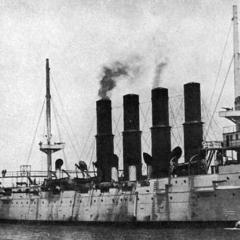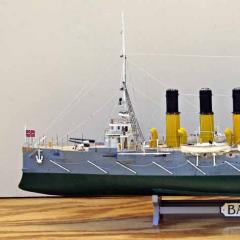Volsk Institute of Logistics for Girls. Khrulev Academy: address, departments, head
They have a long tradition of educating personnel. One of the oldest institutions is the Khrulev MTO Academy, where officers and mid-level specialists are trained in the field of management and provision of material and technical means of the army and rear.
Story
The Military Academy of Logistics named after A.V. Khrulev was founded in 1900. The task of the educational institution was to train and educate officers of the quartermaster service. Up to this point, there were no such institutions anywhere in the world. In 1906, the term of study was extended to 3 years, and the institution was equated to a school of higher military education.
The status of the academy was assigned to the university in 1911, and after the revolution, like many military universities in St. Petersburg, the institution came under the control of the Red Army. In the period 1924-1925, an attempt was made on a large-scale reorganization - all faculties were distributed among military universities, which affected the quality of education of graduates.
A new round in the history of development began in 1932, when the Military Transport Academy was established in Moscow, and in 1935 the Military Economic Academy was founded in the city of Kharkov. The merger of the two institutions took place in the post-war period, in 1956. Since 1999, the academy has been training specialists with a complete higher military education, and since 2010, cadets with secondary specialized training have also begun to graduate from the walls of the institution.
General Khrulev
Khrulev Andrei Vasilyevich - General of the Army, career military man and honored statesman. Born into a peasant family in 1892, at the time of the 1917 revolution he was a worker at the Okhta gunpowder factory and took an active part in the storming of the Winter Palace. Since 1918 he served in the regular troops of the Red Army. During the Civil War, he served as the head of the political department of one of the divisions.
In 1925, Andrei Vasilyevich Khrulev was educated at the higher courses of the Red Army, after which he was appointed to work in the central apparatus of the People's Commissariat of Defense of the Soviet Union. Since 1939, he headed the army supply department, and since 1940, he took the post of chief army quartermaster.
With the outbreak of hostilities, Lieutenant-General A. V. Khrulev became deputy people's commissar of defense of the country and took over the leadership of the Main Directorate of Logistics of the army in the field. During the Great Patriotic War, for about a year, in parallel with other duties, he served as People's Commissar of Railways. In 1943, Andrei Vasilyevich was appointed head of the Main Logistics Directorate, and later - head of the rear of the entire Red Army.
In the post-war period, A. V. Khrulev held senior positions in the logistics department of the USSR Armed Forces. Since 1951, he was appointed deputy minister in the national economy and was engaged in the development of the building materials industry. In 1958 he returned to the Ministry of Defense of the Soviet Union as an adviser-inspector. He died in 1962 and was buried in Red Square. The Khrulev Military Academy bears the name of an outstanding military man who managed during the war to organize and debug one of the most important parts of the regular army - logistics.

Description
At the present stage, the Khrulev Academy is the leading educational and methodological center for the material and technical support of the Russian army. The university graduates officers and specialists in the field of organizing the logistics of any kind of troops of the Russian Ministry of Defense and other authorities where military service is supposed.
Since August 2016, Lieutenant General A. V. Toporov, who has experience in military operations in Syria, has been appointed head of the academy. .
The education system is focused on the education and training of personnel for the following structures:
- Ministry of Defense.
- Border Service.
- Ministry of Internal Affairs of the Russian Federation.
- For the armies of other countries (training of military personnel from foreign countries is carried out at a special faculty).
In addition to training new personnel, the Khrulev Academy provides retraining for current and retired officers and teachers. The research direction of the university deals with the problems of organizing the provision of the army in combat and peaceful conditions, publishes articles, monographs, military-theoretical publications and much more.

Branches and main divisions
The A.V. Khrulev Military Academy of Logistics is the head educational institution, which includes branches:
- Engineering and technical military institute.
- and military communications.
- Branch of the Academy in the city of Volsk (material and technical support).
- Branch of the Academy in the city of Omsk.
- Branch of the Academy in the city of Penza.
The main faculties of personnel training:
- Command or material and technical support.
- Command-engineering or automobile-road.
- Retraining of personnel and advanced training.
- Special training.
- Division of secondary vocational education.
- Junior specialist training battalion.
- Sixteen departments, a separate discipline.
- Research units and institutes.
- Faculty of distance learning.
The Khrulev Academy implements the educational process at the bases located in the Leningrad region, in the city of Luga, the village of Privetninskoye. Students have access to workshops, communications and information technology materials, library, club, museum, editorial and publishing departments.

Automobile and Road Faculty
The largest faculty of the academy is command and engineering, which trains specialists in three areas:
- Construction, use, restoration of roads, as well as their technical cover.
- Construction, use, restoration of bridges and crossings, as well as their technical cover.
- Logistic support (organization of logistics, management).
Cadets master the sciences for 5 years. Classes are conducted by experienced teachers and military personnel, many of whom have scientific degrees. The training contains a theoretical part and a large amount of practical work. Classrooms are equipped with modern interactive stands with working models. Part of the practical training is carried out on two training fields (road commandant training and bridge training), where seventeen training grounds are equipped.

Faculty of Logistics and Railway Troops
The structure of the faculty includes the departments:
- Organizations of material and technical support.
- Department of railway troops.
- Material support.
- Organization of material and technical support of the Navy.
The Khrulev Academy in this area of study implements master's training for cadets in the following specialties:
- Troop supply management (specialization - logistic support management, management of rocket fuel and fuel supply, food supply, clothing supply).
- Management, command of parts of the railway troops.
The training is designed to train the army command staff in the units engaged in logistics.

Chairs
At the academy Khrulev, there are 17 departments, the basis of their activity is the training of military personnel and scientific work. The structure of the faculties includes the following departments:
- Organization of material and technical support of troops and rear.
- Organizations of the military-technical support of the Navy.
- Support for the rear of the National Guard troops.
- Army logistics department.
- military messages.
- Road service.
- Technical support.
- foreign languages.
- Physical training.
- Tactics and operational art.
- Russian language.
- Humanitarian, social and economic disciplines.
- Railway Troops.
- Restoration and operation of bridges and crossings.
- General technical and general scientific disciplines.
- The use of subdivisions (parts) of MTO.
All departments are staffed by military personnel with extensive theoretical knowledge and rich practice. Employees conduct scientific, research work, generate new methods of providing troops for the smooth functioning of the structures of the armed forces in peacetime and wartime. Many departments have published educational and methodological manuals, conduct analytical activities that improve the quality of education of cadets, and instill skills in the practical application of the knowledge gained.

Levels of education
The Khrulev Academy trains specialists at the following levels of professional education:
- Specialized secondary.
- Higher (bachelor's degree, specialist's degree, master's degree, higher qualification).
- Additional education.
Directions of secondary vocational education:
- Technique and technology of land transport (auto, railway).
- Management in technical systems.
- and environmental management.
- mechanical engineering
- Economics and Management.
- Communication systems
- Electronics and radio engineering.
Higher education is conducted in the following areas:
- Technique and technology of construction.
- Military administration.
- Technique and technology of land transport.
- and electrical engineering.
- Weapons and weapon systems.

Requirements for candidates
Candidates for admission to a university for full military special training are considered citizens who meet the following requirements:
- Citizens of the Russian Federation.
- Completed a full course of high school education.
- The age of applicants is from 16 years old and not more than 22 years old (who have not completed military service).
- Citizens who have served in the Armed Forces of the Russian Federation (age restrictions - up to 24 years).
- Military personnel (on conscription in the Armed Forces of the Russian Federation, up to 24 years).
- Entering the departments to receive full military special training is allowed for applicants under 27 years old.
- Citizens under the age of 30 are allowed to enter the departments of secondary military special training.
- Women are recruited only in one branch, located in the city of Volsk, for the specialty "Logistics".

Selection rules
To participate in the competitive selection to the selection committee of the VA MTO, candidates submit the following information:
- Documents (passport or military ID to prove citizenship and be subject to military conscription), a high school diploma or a diploma of secondary vocational education.
- Information about the benefits in admission, achievements, information about the results of the exam.
When selecting candidates, the selection committee takes into account:
- State of health and fitness for military and combat service.
- Applicability of candidates according to the data of psychological studies (psycho-emotional, psycho-physiological, psychological).
- Results of entrance examinations and tests (USE).
- Physical preparation of candidates.
The selection is held from 1 to 30 July. According to past admissions, the average competition for open specialties is three people per place. All candidates go through preliminary and final medical selection. The duration of training in full military special training (specialty) is 5 years, secondary military special education (qualification level - technician) lasts for 2 years 10 months. During the entire course of study, cadets live in barracks with full property and food allowance at the expense of the state.
Addresses
Military Academy. A. V. Khruleva (main branch) is located in St. Petersburg, at the address: Admiral Makarov embankment, building 8.
Branches in St. Petersburg:
- Institute of Railway Troops and Military Communications - st. Suvorovskaya (city of Petrodvorets), building 1.
- Engineering and Technical Military Institute - st. Zakharyevskaya, building 22.
Nonresident institutes (branches):
- The city of Omsk (armored engineering) - the village of Cheryomushki, the 14th military town.
- City of Volsk (institute of software), Saratov region - st. named after Maxim Gorky, building 3.
- The city of Penza is the 5th (artillery and engineering) military town.
ADMISSION CONDITIONS Higher professional education
The branch trains officers-specialists of the food, clothing, fuel service with a higher military special education for the types and branches of the Armed Forces of the Russian Federation and other ministries and departments.
The term of study is 5 years. Those who graduate from the branch are awarded the military rank of "LEUTENANT" and a state diploma in the specialty 080225 "Logistic support" (specializations: food and clothing support for troops (forces), provision of troops (forces) with rocket fuel and fuel, joint support of the forces of the fleet), with assignment qualification "SPECIALIST".
The branch accepts citizens of the Russian Federation who have state documents on secondary (complete) general, secondary vocational education or a state document on primary vocational education, if it contains a record of receiving secondary (complete) general education, from among: citizens aged from 16 to 22 years old who did not do military service; citizens who have completed military service and conscripted military personnel - until they reach the age of 24; military personnel undergoing military service under a contract (except for officers) - until they reach the age of 25 years. The age of applicants for study is determined as of August 1 of the year of admission to the university. Persons wishing to enter the branch submit an application (report for military personnel) about this: military personnel - until April 1 of the year of admission on command addressed to the unit commander; civilian youth - until April 20 to the military commissariat of the district at the place of residence. The following documents shall be attached to the application (report):autobiography;
a photocopy of the birth certificate;
a photocopy of a document proving identity and citizenship;
a photocopy of a document on secondary education (students provide a certificate of current academic performance, persons who have completed the first and subsequent courses of educational institutions of higher professional education submit an academic certificate);
characteristics from the place of work, study or service of the established form;
medical documents of the established form;
professional psychological selection card;
three certified photographs sized 4.5×6 cm;
service card (for military personnel).
Original documents on secondary education, a passport, a military ID, as well as original documents giving the right to enter universities on preferential terms, are presented to the selection committee upon arrival at the branch, but no later than one day before the meeting of the selection committee to make a decision on enrollment university candidate.
Having considered personal cases, the selection committee of the branch communicates to the candidates a decision on admission to professional selection through the relevant military commissariats, in which it informs the place of professional selection and the date of arrival, or the reason for the refusal.
Military registration and enlistment offices issue documents for free travel to the branch to civilians. Candidates arriving at the branch are provided with free meals and accommodation for the period of entrance examinations.
From June 1 of the year of admission to the university, a 25-day training camp is held with candidates from among the military personnel in order to prepare them for professional selection.
The selection committee is working on the professional selection of candidates in the branch from July 1 to July 30.
Out of competition, candidates who have successfully passed the professional selection from among:
- orphans and children left without parental care, as well as persons under the age of 23 from among orphans left without parental care;
- citizens dismissed from military service and entering universities on the recommendations of commanders of military units;
- citizens under the age of 20 who have only one parent - a disabled person of group I, if the average per capita income of the family is below the subsistence level established in the corresponding subject of the Russian Federation;
- participants (veterans) of hostilities;
- citizens exposed to radiation as a result of the disaster at the Chernobyl nuclear power plant (Law of the RSFSR dated May 15, 1991 No. 1244-1).
When conducting professional selection, the following are assessed: the state of health, the category of professional suitability, physical fitness. Evaluated based on the results of 4 exercises:
- 3 km run
- 100 m run
- pull-ups on the bar
- swimming 100m
And the level of preparedness, which is determined by the results of the unified state exam (USE) in general education disciplines (Order of the Minister of Education and Science of the Russian Federation of October 28, 2009 No. 505):
- Russian language
- mathematics
- social science
why applicants must submit to the selection committee the original certificate of the results of the unified state exam, the validity of which has not expired.


